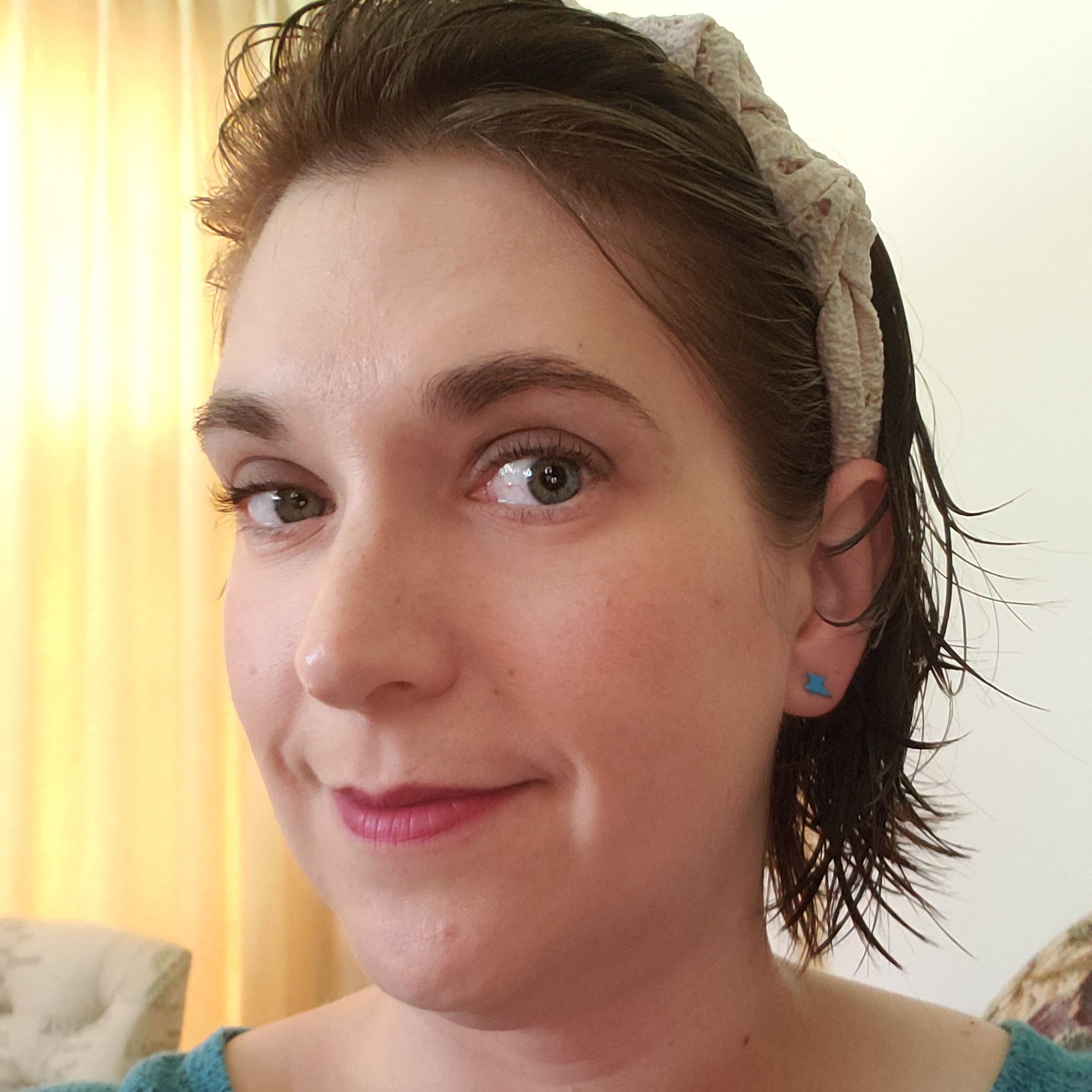I don’t think “female” is offensive.
I thought it was offensive because some (supposedly female) users said it was offensive; but I didn’t understand why my female friends used the term (female).
I found another saying that it wasn’t offensive, and I immediate copied that belief.
LGBTQ+ politics is confusing …
“Woman” is more appropriate for adults 90% of the time unless you’re talking specifically in a scientific context. “Female” feels way too medical, like you’re talking about something foreign or of another species. Before incels popularized it, I’d never heard the term used as commonly as it is now. In fact, I’d only ever seen it used the way it is now in media where you’re supposed to recognize the character as sexist (“haha, the female sex is a mystery indeed” kinda thing).
It’s become oddly normalized in Gen Z, but the question I have is: why aren’t men called “males” nearly at the same frequency?
Every time someone says females I always think of Quark from star trek deep space 9. “Feeeemales”
When you’ve met people who unironically talk like this. 😓
I’m not a native English speaker, but I thought “female” and “male” were both used quite commonly. I guess I’m wrong.
Usually I hear “guys” or “dudes” most often to refer to men. But women don’t get to have fun words. :(
I don’t know, but in Spanish, there are numerous ways to name men and women. And trends change year to year, so the slang to call each of them changes too… so it might just be a cultural or society issue. But well, I’m not in contact much with “common” people since I stopped using proprietary and enterprise software, so I only know about several terms from relatives and videos, but I can ensure that there is several of them. It might also be that Spanish is spoken in a lot of countries, which, I guess, might be the reason for this rich term variety.
Sounds like this topic is probably just a thing for English speakers, then.
Can confirm, a ton of different ones. For both men and women.
deleted by creator
I’ve tended to use “female” when talking about both girls (children) and women. Calling a grown woman a girl always felt a little infantalizing, especially when that isn’t done much to men. At the same time, girls are not women, and I try to be precise in my wording. Female (and male) just make the most sense.
deleted by creator
Alternatively, reclaiming ‘female dog’ would work too
I have a feeling many younger feminists have done that intentionally, treating the word as a badge of honor for their vocalness in protesting. For the past 26 years, Portland, Oregon had a feminist zine with that exact title.
deleted by creator
No, it’s just an adjective for gender. But if instead of saying something like “my best friend is a woman” you said “my best friend is a female” it sounds like you are an alien talking about some kind of specimen.
" I am a fellow human too. My hobbies are to intake water, nutrients, exchange gases via oxidation through a respiratory system and replicate long chains of protein. Ayy lmao. "
I think it’s context, really.
If you are given a clinical description of someone:
- blonde
- female
- good at math
- etc…
Then there’s nothing negative about it. But if you use it in a way that implies or denotes value - objectifies, then it becomes offensive (i think…)
“What does this female want?” - implies that something about being female changes the speaker’s attitude about the request
“You’re such a female” - implies femaleness to have expected negative/positive traits that are being used as a blanket assumption for the subject.
“I chose Joey over the female” - implies that “the female” is less appealing than Joey by virtue of femaleness.
There is also something arbitrarily negative about using the clinical “female” over the less clinical “woman” or “girl” in these kinds of instances; although either has the potential be equally objectifying, especially if you consider the more abstract concept of “tone” and history of the speaker…
A lot of it is contextual nuance, and even then not everyone’s feelings on it are the same. To be safe though, I would avoid referring to someone as female unless it’s factually relevant.
Great answer. Context, tonality and people’s mood/feelings vary wildly and are fundamental aspects of how someone will take such a thing.
Your last point is key - when unsure (e.g. not talking to a close friend), choose the most polite words.
incels occasionally use it to depersonify women. like they’ll call men just men, and then call women females. that’s a very specific context though, so any sane person will not get offended if you use the word normally
To provide some responses to your extra questions:
I don’t think “female” is offensive.
The frustrating thing about offense is it often relies on people having a different perspective, which sometimes is obvious (especially with terms clearly used as insults) but sometimes is more subtle. I feel that it helps to seek out a properly-explained reason someone is offended, to understand the context rather than just the text.
LGBTQ+ politics is confusing …
It’s not even that (those letters stand for things and ‘female’ isn’t one). It’s not even feminism either, I’ve seen “femcel” misandrist groups using ‘male’ the same way to alienate and objectify. Some other people have already explained, it’s a technical biological/medical term that is legitimate, but some people (especially those who don’t like women) use it in a context that is dehumanizing and objectifying, by not using adjectives or nouns more casual and specific to people. Context is the big thing with offense and something I think needs to be emphasized.
I understand that the nuance, like most social nuance, my seem silly and a big thing to care about; a woman is literally an adult female person and that isn’t in itself an insult, it’s a category. But using technical language in a casual context can be interpreted as treating someone like they’re an object of study rather than a fellow human, same with referring to people as ‘it’ (a few people are fine with that for they purpose of explicitly denouncing the concept of gender, but most people would be offended if you referred to them as ‘it’ instead of (for examples) their name or another gendered pronoun).
I think much of it comes down to how “male/female/intersex” are often used in non-technical language when referring to animals (or flowers or electronic connectors), whereas “boy/girl/kid/man/woman” and others usually refer to humans (although they are regularly used also with pet animals, which people often like to humanize and develop personal bonds). That’s why some people are instinctively offended by male/female in a casual non-technical context, like “I find you males interesting” or “It’s easy to talk to you guys, but females make me nervous”. It’s alienating and sexualizing.
It’s interresting because in French (my native language) female is only ever used in it’s biological aspect and after such definition you can find in a dictionary :
“familiar, offensive : woman” source
An example would be : “Bob is really horny and is looking for a female/male”
So I always though that using female in a sentence was to reducing women to their reproductive dimensions.
But English is more complex. If i understand correctly female is valid as an adjective for persons “female/male friendship , female/male artist”. That would sounds really wrong in French if translated literally. And the noun in a dictionary is “formal : woman or girl”.
So to jump back on your comment, it’s all about context and usage. “Words politics” is a super interresting topics. At the moment, probably because of the internet, we observe over really short amount of time linguistic shift due to the usage by specific groups. Sometimes it is pretty easy to follow because the groups are large and divide society such as political orientation but sometimes it stem from obscure subculture such as incel here…
It’s contextual. “Females” is often a slightly nicer way of saying “removed,” but it’s also often just a neutral term. I’d say the top comment from /u/frankaiden02 in that thread gets it right.
What is offensive is just a personal perspective so you’re gunna get mixed answers. Ultimately it will always come down to what the person meant by it and how the other person perceives it, by default that is a mixed bag of emotions and reactions.
I’ll note that I do something I call synonym panic where I get to a keyword in a sentence and I kind of blank, start struggling for words then start cycling through all the possible words I could use it and often land on some pretty odd sentences. Referring to the ‘past’ as the ‘back-timies’ as a prime example or more commonly just saying the ‘stuff’ or ‘things’ because I’m afraid I’m about to choose the wrong word.
It might be offensive to some people, but even if it doesn’t offend it makes you sound like a weirdo. This has nothing to do with LGBTQ+ politics
Not to me, but unfortunately I cannot read your full post because I do not use reddit.
Its not my post; someone else posted it.
Here’s the actual reddit post.
Can someone help me understand a post I read on r/TwoXChromosomes - It was a post addressing the term “female” and many of the commenters agreed that it was ‘dehumanizing’. It didn’t make sense to me because it’s a word that is commonly used and I haven’t heard anyone describe it this way before. Usually I can make sense of how another person is feeling by imagining myself in a similar position but I just would not feel upset or angry if anyone described me as “male”.
I’ll stop using it if it hurts people, but I admit it is frustrating when common every day words suddenly become wrong to say.
EDIT: I appreciate all the replies. There have been a lot of mixed opinions, but I do find it comforting that I’m not the only one confused by this. Here’s what I learned:
After asking some friends outside of Reddit, I’ve made the realization that the majority of women are not actually offended by the term “female”. It seems to be more prevalent on Reddit. After reading your comments I suspect that may be because the women of Reddit are more exposed to “incel” culture and the toxicity that comes with the anonymity of the internet. They are more likely to have heard the term female used in a derogatory manner and given it a negative association. I think the word itself is fine and those who are critical of it are really upset by the underlying misogyny which is something I completely understand.
I agree. The word is fine, it is how it is used. Like the word male and plural forms of both words. The anonymity shows how people really think of others and perpetuates toxic thinking and treatment of others.
It’s only offensive if it’s meant to be offensive
deleted by creator
Great question, keeping up with what is political correct is very difficult and it’s easy to get cancelled.
It’s not really though. As long as you’re open to understand a good argument against a habit that you learned earlier and you’re a respectful person, you shouldn’t have a problem.
deleted by creator
Ok. How were they cancelled?
deleted by creator
but if someone knows how to keep up with the trends let me know.
Make a mistake, get corrected, and act accordingly. I say this as someone who has made plenty of mistakes and has been corrected plenty of times, and these days I find it easier to keep up with language that evolves. I wouldn’t say it’s an easy way to get cancelled, unless one insists on planting their feet in the dirt and not being willing to budge at all.
deleted by creator
Were they cancelled, or did they just say a really stupid statement and face public backlash that typically come as a response to divisive, contrarian statements?
deleted by creator
I don’t think so. I’d say cancelled is more akin to being blacklisted.
Saying that this is keeping up with changing trends of what is politically correct language implies that there was a time when referring to women as “females” outside the context of a biology lesson didn’t sound weird as hell. Have you got any sources for mass usage of the term in that way from the past?
deleted by creator
There is nothing offensive about it. There are people who will get offended at anything and you can’t live your life constantly in fear of such people.














